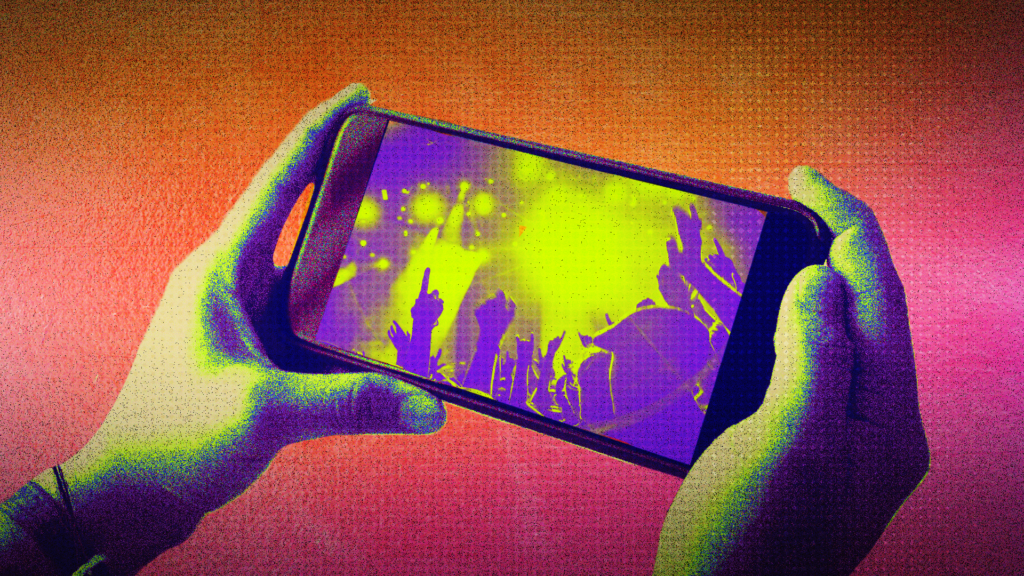As brands assess the relevance of the metaverse to their marketing goals, sponsored virtual concerts present a novel consumer engagement opportunity.
Even after pandemic lockdowns ended, consumers were still interested in attending concerts virtually, at rates much higher than pre-pandemic levels. That shift has helped accelerate artists’ and music labels’ efforts to monetize virtual events. As a result, the global market for virtual events is projected to exceed $617 billion by 2030 due partly to consumers’ willingness to shift spending to virtual reality experiences, a market segment estimated to surpass $227 billion by 2029. Researchers estimate that by 2026, 25 percent of consumers will spend at least an hour each day in a metaverse space for work, shopping, or entertainment. In addition, a recent survey revealed that 56 percent of Gen Z and 61 percent of millennials are interested in attending a virtual concert.
Roblox And Warner Music Group Collaboration May Signal A Trend
Travis Scott’s nine-minute concert in the metaverse resulted in $20 million in revenue – twice what Amazon earned per minute that same year. Likewise, Ariana Grande’s Fortnite concert reportedly drew 78 million viewers, making her a seven-figure payday. The connection between gaming platforms and the prospect of millions of engaged fans in one spot is not an accident. Games like Fortnite give music labels access to millions of engaged fans and an opening to introduce artists to a diverse audience only found together when gaming. That trend has not been missed by entertainment brands seeking to capitalize on consumers’ growing interest in live virtual experiences.
Recently Warner Music Group (WMG) announced the launch of Rhythm City, a music-themed social roleplay experience for Roblox. Developed in partnership with Gamefam, Rhythm City will introduce Roblox audiences to new artists and music through social roleplay in tandem, granting them access to exclusive digital items.
“As our lives become increasingly digital, exciting opportunities are opening up for artists and fans to engage and interact,” stated Oana Ruxandra, Chief Digital Officer & EVP, Business Development at WMG, in a press release. “WMG is focused on facilitating the foundations of these new experiences by building and experimenting across evolving ecosystems. This partnership with Gamefam sees WMG creating a place for artists and audiences to unite to define and contextualize their communities within living spaces.”
Roblox users can role-play as virtual music producers, DJs, and other characters. In addition, WMG stated that Rhythm City would also host virtual concerts and events featuring WMG artists.
Recently, Fortnite raised $3 billion to expand its efforts to innovate within the metaverse. Investors, like the entertainment brands seeking to engage gamers on Fortnite, likely see gaming platforms as a unique opportunity to create brand affinity and test new options for driving revenue in virtual spaces. That led live music events like Coachella to launch Fortnite events and branded virtual merchandise and entertainment networks like IHeartRadio to launch virtual worlds on the platform. In addition, it has led to new concerts from other music labels, like the recent Kid Laroi concert on Fornite, where the artist released new tracks as the narration for a video experience that rewarded viewers with XP and exclusive DLCs.
The Takeaway For Marketers
Millions of consumers game daily. Building relationships on these platforms requires marketers to develop content that feels native, immersive and engaging – just like a game. Music is powerful for igniting a sense of community and drawing fans to new platforms. However, the most successful live entertainment experiences don’t have to feature an Ariana Grande-level talent. Marketers have been building virtual experiences on Fortnite for years, and leveraging music fandom is a natural evolution to an intelligent engagement strategy.

